UV Filter: Should You Use One on Your Camera Lens?
![]()
Photographers use a range of different filters on their camera lenses for different effects and purposes, and one of the most common filters found in a camera bag is the standard UV filter.
Table of Contents
What is a UV Filter?
An ultraviolet (UV) filter is a clear-glass photographic filter that is attached to the front of a lens that blocks incoming ultraviolet light rays from reaching the camera sensor.
![]()
UV filters were much more important in the days of film photography, but as cameras transitioned into the age of digital, the original purpose of the filters became far less important. These days, whether or not to use UV filters on a digital camera lens is a matter of constant debate.
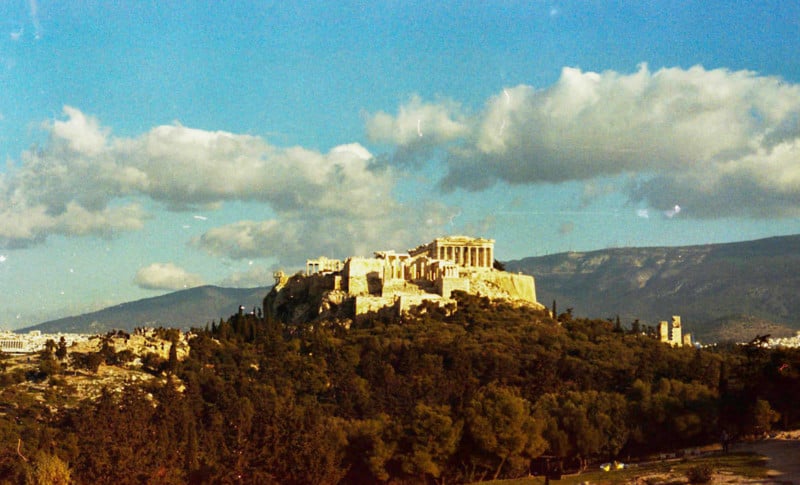
You may occasionally see UV filters sold with an L reference in their name, such as L35, L37, or L39 — the Nikon 72mm UV Haze L37 glass filter, for example.
![]()
This refers to the wavelengths that are filtered out by the glass. An L35 filter blocks UV light of wavelengths shorter than 350 nanometers (nm), L37 removes everything up to 370nm, and so on.
What is UV Light and How Does it Affect my Photos?
UV light covers the range of wavelengths between 100-400nm in the light spectrum, which in terms of color is translated to violet and blue tones.

“Visible light” for the typical human eye is around 380nm to 750nm, though sometimes people may be able to perceive wavelengths down to 310nm in the ultraviolet range and up to 1100nm near the infrared range.
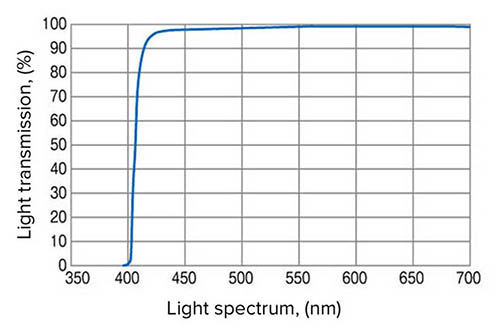
Though it is not visible to our eyes, UV light may affect our images when shooting in daylight, especially when shooting in mountainous environments or near the sea. It can result in a slight blue color cast in the resulting photos.
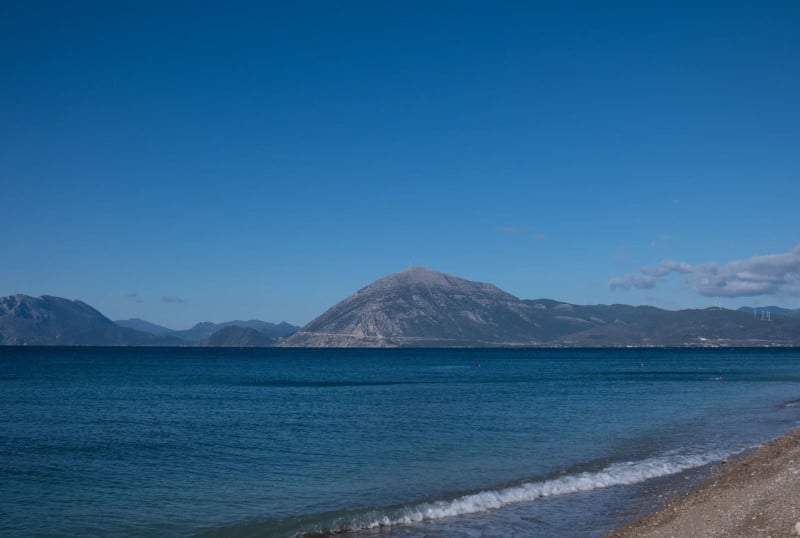
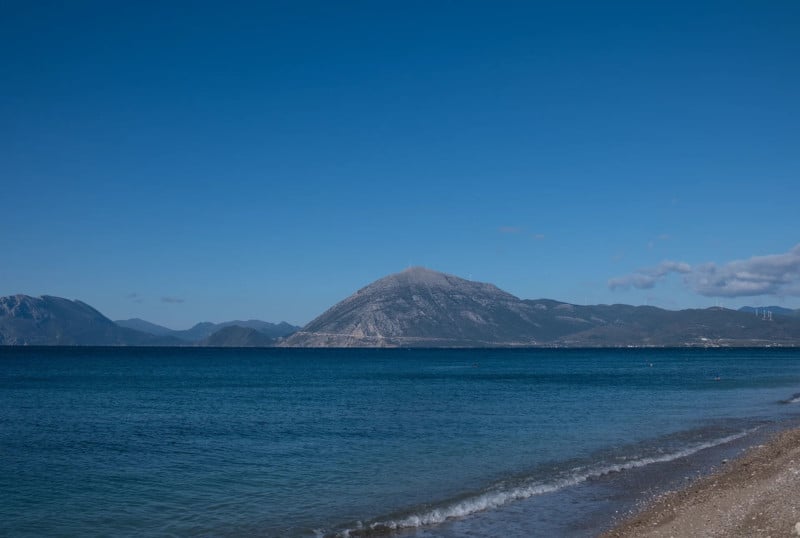
A UV filter can block incoming ultraviolet light from reaching the camera sensor, removing the unwanted blue color cast.
Film photography is more sensitive to UV light compared to digital cameras, which means that it can be important to use a UV filter when shooting on a non-digital medium.

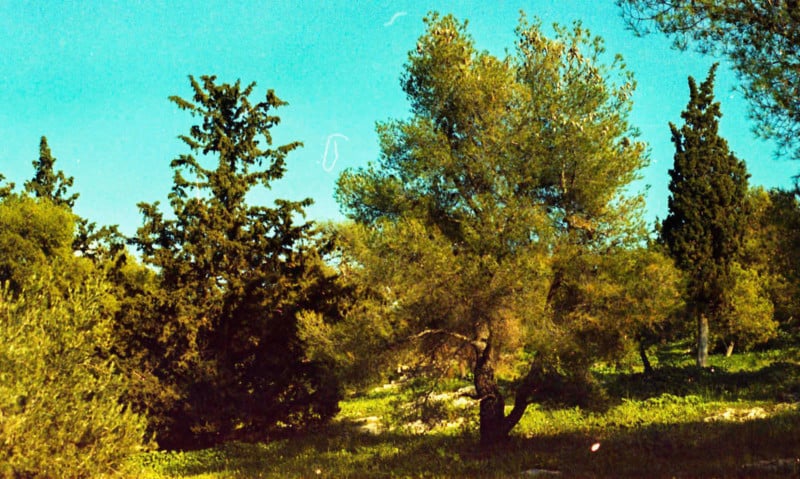


Virtually all digital cameras these days already ship with a thin, built-in UV filter in the protective layers in front of the camera sensor, so the difference when shooting with and without UV filters may be imperceptible or non-existent.

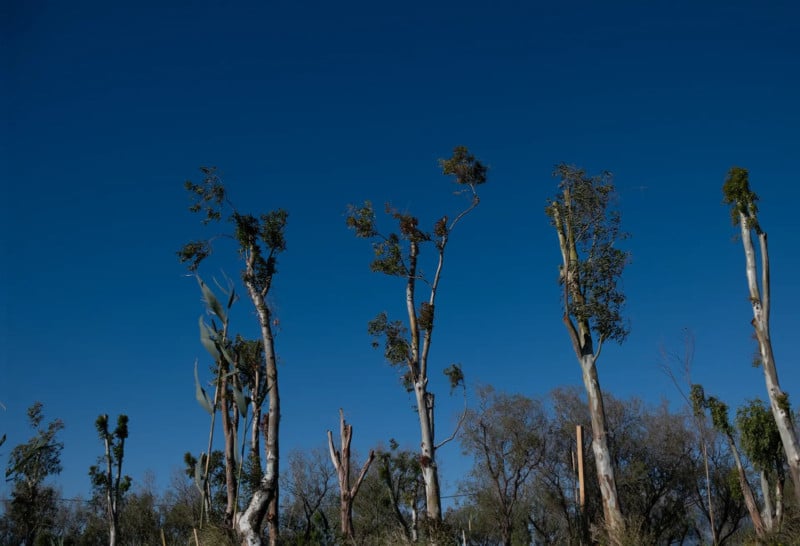
Do UV Filters Degrade Image Quality?
It is important at this point to note that whenever you place something in front of your camera, whether it’s a lens or a filter, optical quality should be one of the key things to keep in mind.
Even if you have the latest, greatest, and most expensive camera when it comes to specs and features, placing a low-quality optical element (whether a lens or filter) in front of that camera will result in lower-quality images than the camera is capable of.
Specifically for filters, as there are a lot of options in the market, it is recommended that you consider high-quality products from reputable manufacturers. These are typically filters that incorporate two important things:
1. Multi-layer coatings that help reduce or eliminate optical aberrations such as chromatic aberration, flaring, color casting, etc.
2. Glass elements instead of plastic, which will help maintain the highest possible image quality.
Of course, all of the above also applies to every type of filter in general and not just to UV filters.
Is a UV Filter Just a Lens Protection Filter?
So if you are a digital photographer, is a UV filter basically just a lens protection filter? The short answer is basically yes. Since digital cameras are far less sensitive to UV light compared to analog cameras, photographers may rarely run into occasions in which a UV filter makes any difference in improving the image quality of photos.
By having a UV filter in front of the lens, however, the risk of accidentally hitting, scratching, or cracking the precious front element is minimized. Think of it as having some extra insurance: it hurts far less to destroy your relatively affordable lens filter than to break your pricey camera lens.
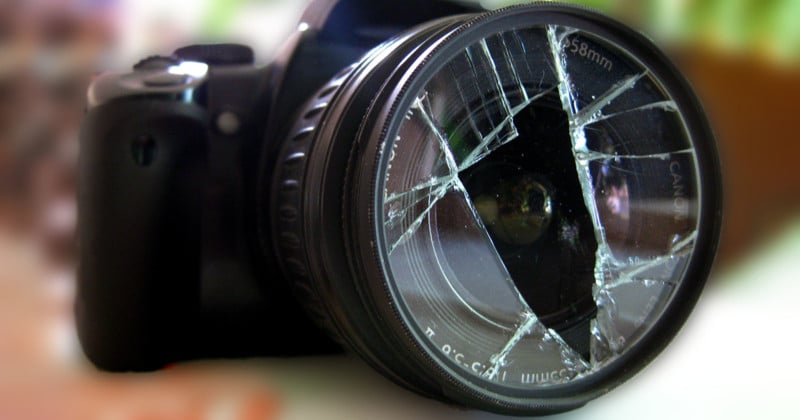
Using a UV filter can also protect your lens from getting dirty with dust particles, water drops, or even fingerprints. Your lens’s front element can stay pristine for longer if you only need to clean your lens filter rather than the actual front element of the lens.
If you shoot with a film camera, however, then a UV filter could be a key accessory to avoiding a blue color cast on your captured shots.
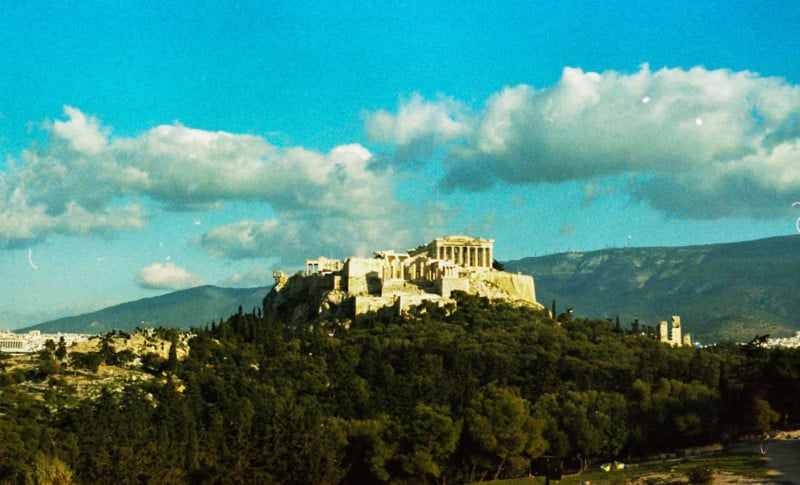
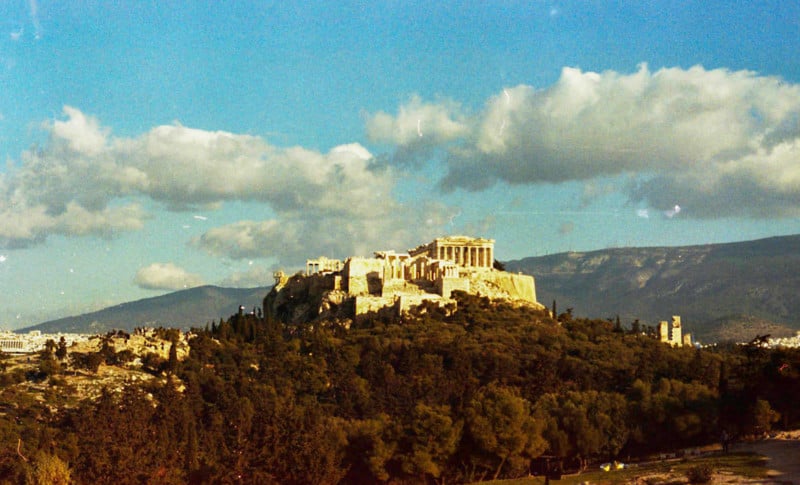
Should I Use a UV Filter on My Lenses?
So should you buy and use a UV filter on your camera lens? Unfortunately, there’s no easy one-size-fits-all answer to that question.
If you shoot a film camera, you should probably consider using one to avoid unwanted color casts.
If you own expensive camera gear and want to protect your lens, then consider purchasing a high-quality UV filter to provide an extra layer of security and peace of mind, especially if you often shoot in riskier (e.g. in the mountains or places bustling with people) or dirtier environments (in rainy weather or by the sea).
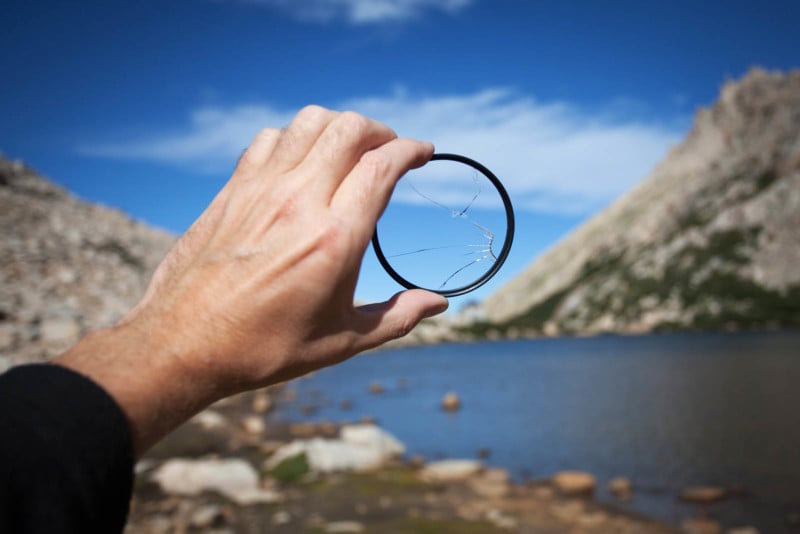
If image quality is what’s most important to you, though, and you’re willing to leave your front element exposed, you may need to think long and hard about whether you’re willing to sacrifice even the slightest bit of image quality by putting another glass element in front of your camera lens. Adding any lens filter may reduce sharpness and contrast as well as cause unwanted flaring and other aberrations in your photos.
In the end, as with many choices in this industry, using a UV filter comes down to personal preference and whatever is best for you and your photography.